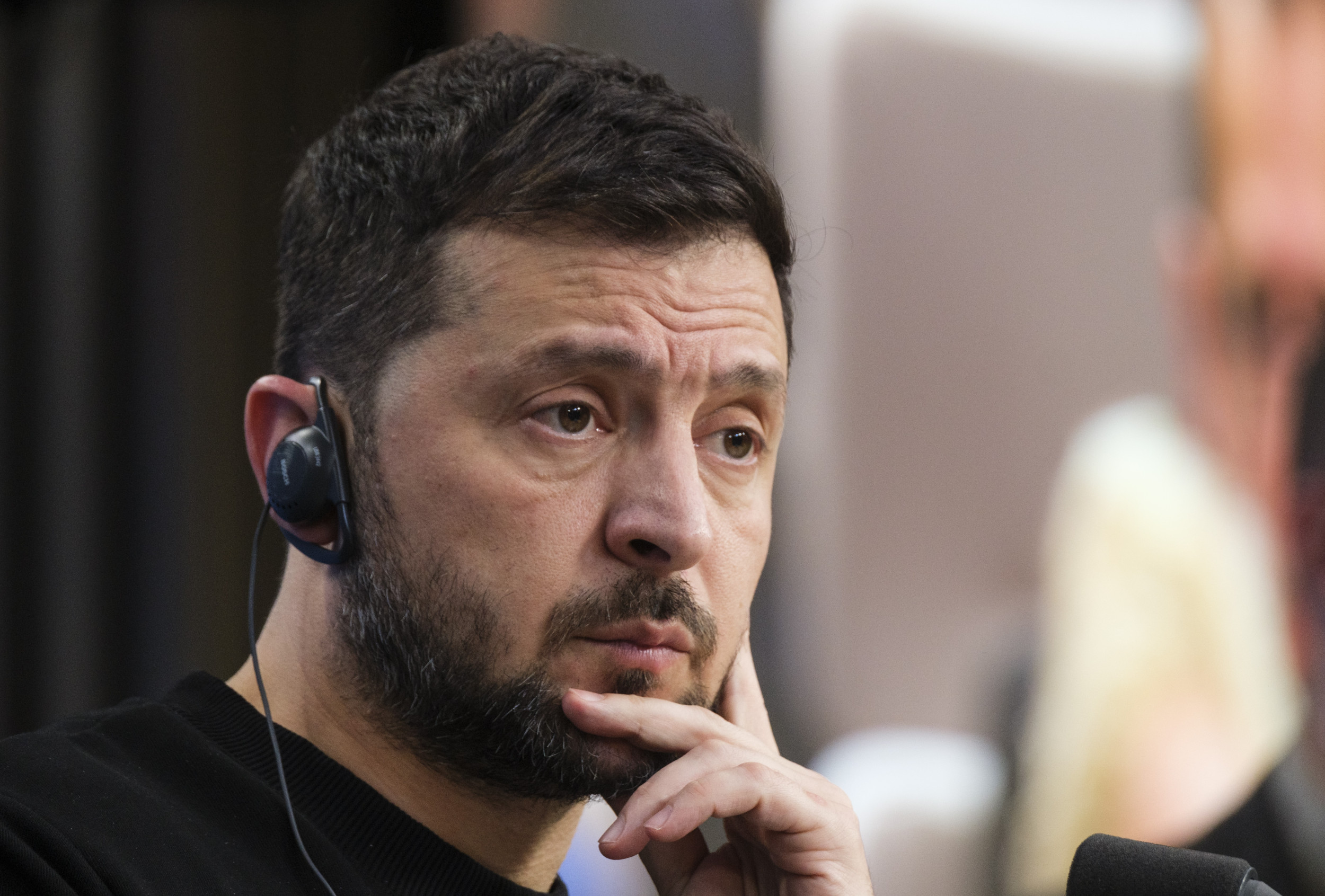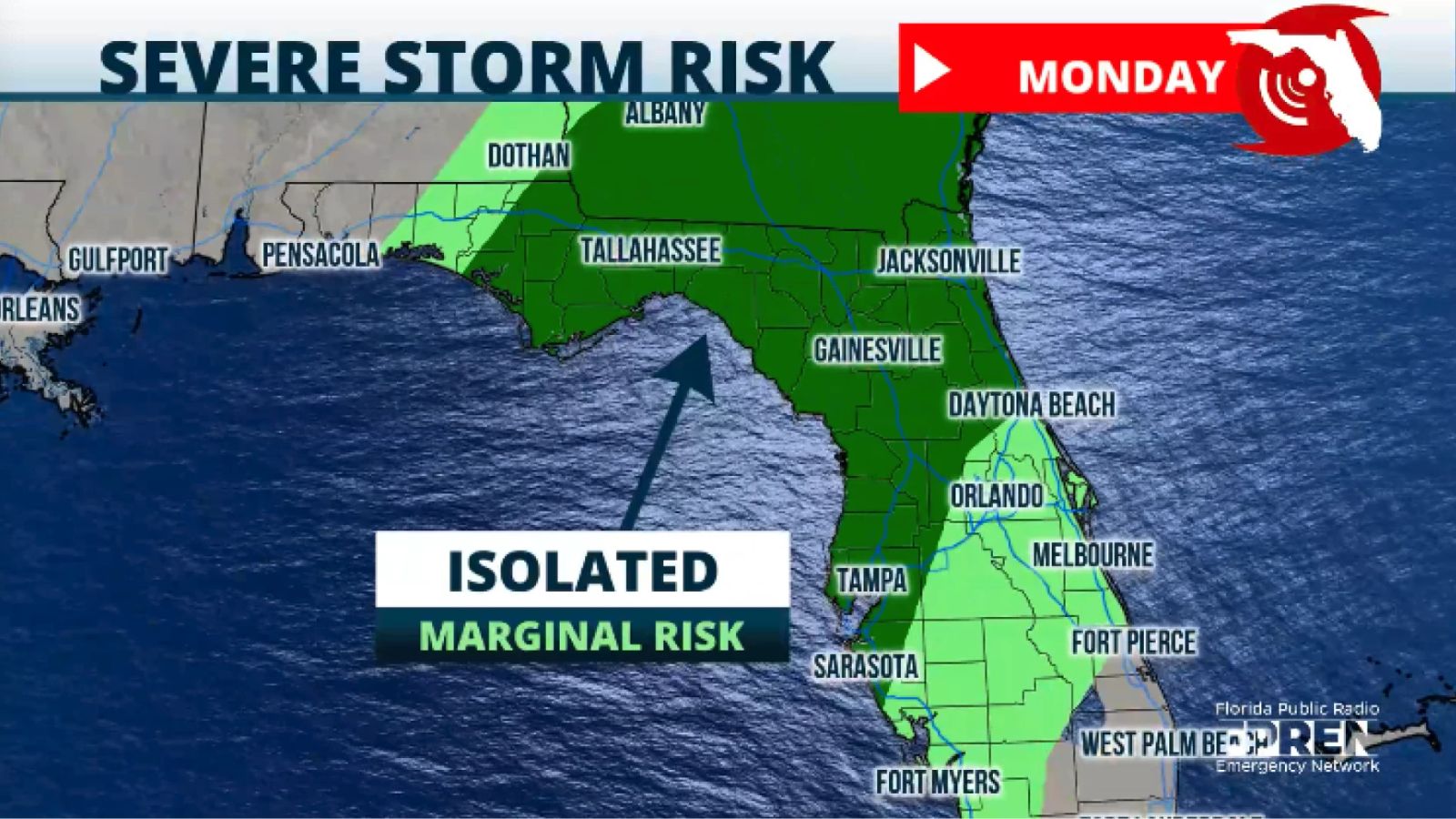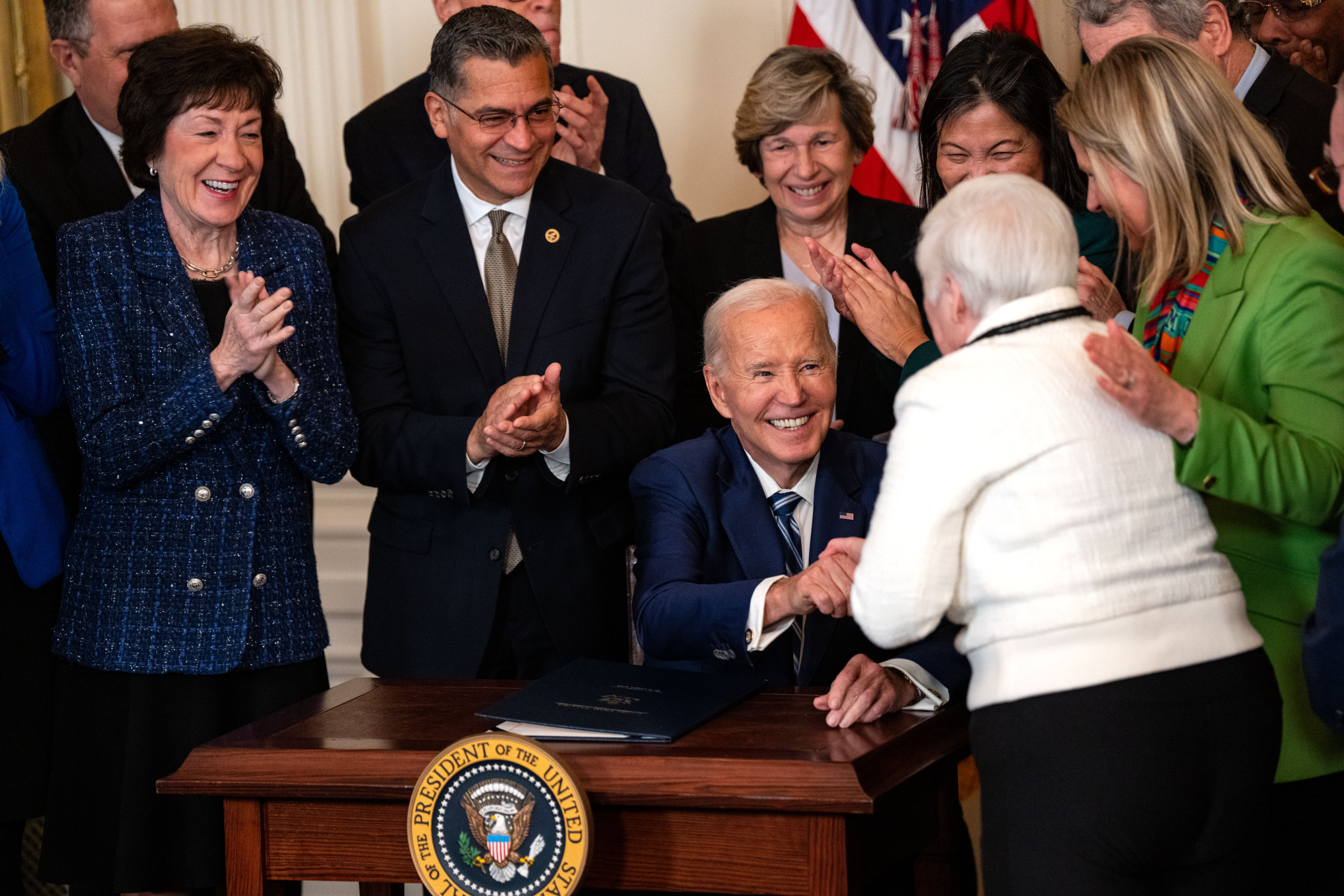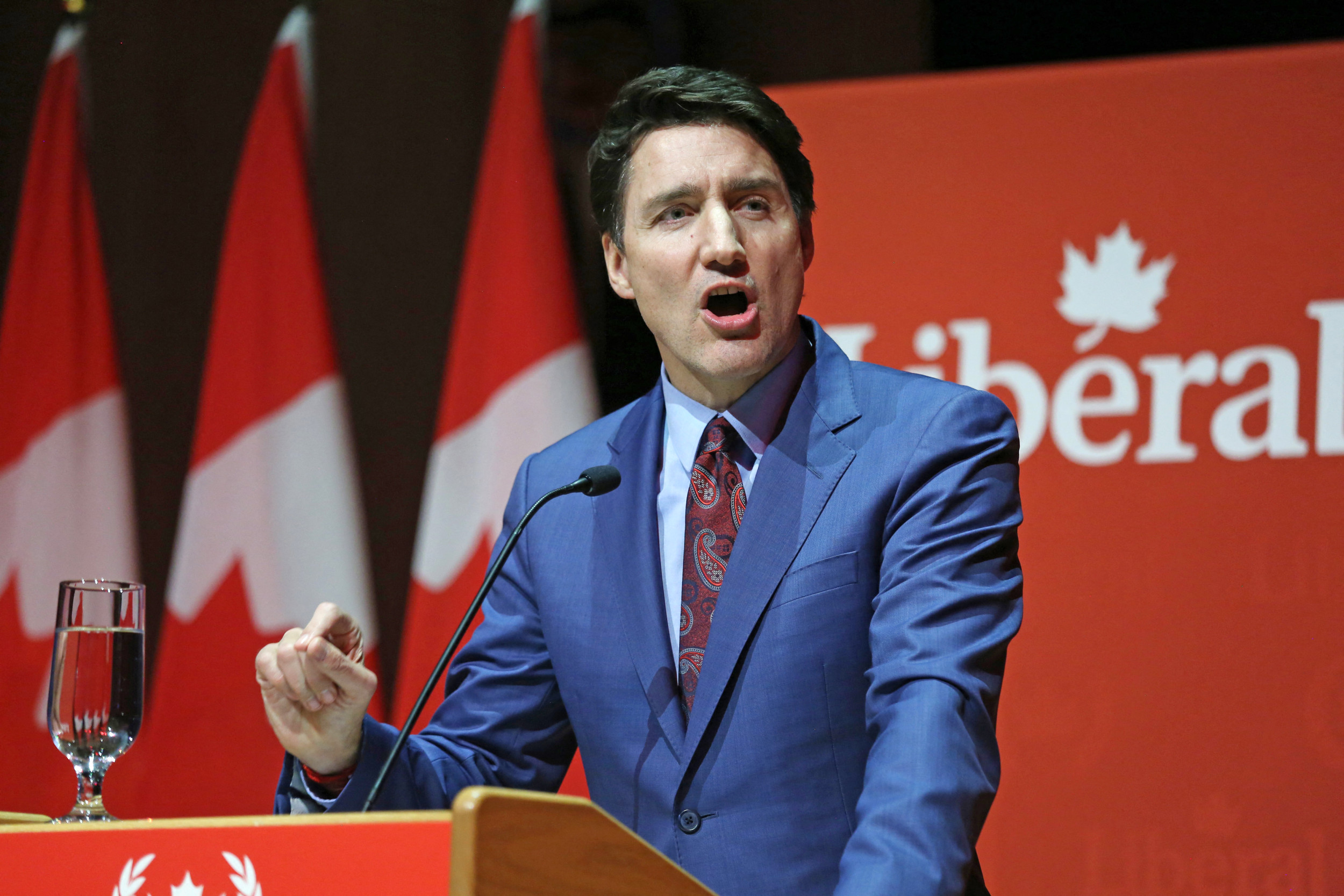Over the past few weeks, President-elect Donald Trump has ruffled feathers by suggesting the United States should seek to expand its territorial holdings by encouraging Canada to join the Union as the 51st state, purchasing Greenland from Denmark and reclaiming control of the Panama Canal.
Speaking to Newsweek, one American history expert said Trump's policies were a "throwback to the 19th century," which saw the U.S. expand westwards across North America and even occupy Cuba and the Philippines.
A second academic who specializes in American imperialism said Trump was seeking an "older form of power projection" that "harks back to the bloody days of Teddy Roosevelt."
Following his election victory over Vice President Kamala Harris in November, Trump announced he plans to impose a new 25 percent tariff on all goods entering the U.S. from Canada and Mexico until the two countries "stop" the traffic of drugs and illegal migrants into the country.
The move caused Canadian Prime Minister Justin Trudeau to race down to Trump's Mar-a-Lago resort in Florida to discuss the issue, after which the president-elect mockingly branded the Canadian leader "Governor Trudeau" on Truth Social.
When contacted for comment by Newsweek, Trump transition spokesperson Anna Kelly said: "World leaders are flocking to the table because President Trump is already delivering on his promise to Make America Strong Again. When he officially takes office, foreign nations will think twice before ripping off our country, America will be respected again, and the whole world will be safer."

On December 18, Trump explicitly called for Canada to join the American Union.
In a post on Truth Social, he said: "No one can answer why we subsidize Canada to the tune of over $100,000,000 a year? Makes no sense! Many Canadians want Canada to become the 51st State. They would save massively on taxes and military protection. I think it is a great idea. 51st State!!!"
No major Canadian political party or politician has come out in favor of joining the U.S. A Leger poll conducted between December 6 and 9 found just 13 percent of Canadians would back such a move, while 82 percent were actively opposed.
Trump also reiterated his first term suggestion that the U.S. should purchase Greenland, a Danish autonomous territory that spans more than 835,000 square miles with a population of just under 60,000.
In a Truth Social post on December 22, Trump wrote: "For purposes of National Security and Freedom throughout the World, the United States of America feels that the ownership and control of Greenland is an absolute necessity."
Danish authorities have previously indicated they have no interest in selling Greenland. In 2019, Trump canceled a planned visit to the Scandinavian nation after Danish Prime Minister Mette Frederiksen branded his earlier suggestion that the U.S. should buy Greenland as "absurd."
The U.S. seriously contemplated making an offer for Greenland and Iceland during the presidency of Andrew Johnson in 1867-68. In 1946, President Harry Truman offered Denmark $100 million in gold bullion for the territory. Neither effort was successful.
On December 21, Trump also suggested he could demand the return of the Panama Canal to American sovereignty. The canal was funded and constructed by the U.S. but turned over to Panama in 1999 in accordance with a deal signed by President Jimmy Carter in 1978.
In a Truth Social post, Trump said: "The fees being charged by Panama are ridiculous, especially knowing the extraordinary generosity that has been bestowed to Panama by the U.S.
"If the principles, both moral and legal, of this magnanimous gesture of giving are not followed, then we will demand that the Panama Canal be returned to us, in full, and without question."
Speaking to Newsweek, Professor Sean Adams, an American history expert at the University of Florida, compared Trump's proposals to 19th-century American imperialism.
"The plan to acquire Greenland does offer a bit of a throwback to the 19th century when many American politicians—particularly Democrats—were quite aggressive about territorial expansion," Adams said.
"In fact, by the 1850s, there was a phrase, American 'spread-eagleism,' that described this imperative. And the idea of expanding Republican government across the continent and throughout the world—whether residents wanted it or not—was the ideological force that fueled it.
"So from the 1840s to the 1860s, we saw the American acquisition of huge swathes of Mexico, Russian Alaska, and unsuccessful attempts to annex Santo Domingo (now the Dominican Republic) and purchase Greenland and Iceland from Denmark. The idea was [that] the Republican government was America's gift to the world, and it needed to be extended as much as possible. The economic opportunities that came along with expansion was a nice bonus as well."
Adams compared Trump's ambitions to those of President Andrew Jackson, who oversaw the Alaska Purchase. However, he argued the incoming president is less concerned with the expansion of the Republican government.
"President Trump hung a portrait of Andrew Jackson in the Oval Office, and the recent turn towards territorial expansion is quite reminiscent of Jacksonian attitudes towards aggressively expanding the boundaries of the United States," Adams said.
"That said, it sounds like the Trumpian version hinges more on realpolitik than a crusade to expand Republican government. It does seem a dramatic departure from the current American style of global engagement, which seems to rely more on treaties, alliances, and focused military campaigns than the rapid expansion of American holdings."
Throughout its history, the U.S. has expanded substantially by buying territory from other countries, including the 1803 Louisiana Purchase from France, the 1819 Florida Purchase from Spain, the 1854 Gadsden Purchase from Mexico and the 1867 purchase of Alaska from Russia.
Speaking to Newsweek, Daniel Immerwahr, an expert in American imperialism who teaches at Northwestern University, agreed that Trump's proposals would be "a return to an older vision of power, where security is achieved through acreage" rather than alliances and trade.
"Since roughly 1945, the United States has pursued more diffuse forms of influence through trade pacts, security partnerships, arms flows, and bases," Immerwahr, who wrote the 2019 book How to Hide an Empire: A History of the Greater United States, said.
"All these require close connections to foreign governments. Trump's vision of a strong United States, by contrast, seems to be a large piece of real estate, enclosed within high walls, making nuclear and other dire military threats—he wants power over the world, but not presence in it."
Immerwahr continued: "So, rather than gaining the strategic benefit of Greenland by operating a military base or trading with Denmark, he is seeking again to purchase Greenland."
However, Immerwahr questioned the suggestion that Trump's policies amount to "a return to an age of empire," arguing the current age is not non-imperial, with global U.S. influence resembling an empire's.
"It would not be a stretch to see the United States's hundreds of military bases outside of its borders as a type of empire...But Trump is clearly more comfortable with an older form of power projection that harks back to the bloody days of Teddy Roosevelt," he said.
President Theodore Roosevelt fought in the Spanish-American War, leading a cavalry unit dubbed the Rough Riders. American victory in the conflict saw Spain hand Puerto Rico, Guam and the Philippines to the U.S. while also relinquishing sovereignty over Cuba.
As president between 1901 and 1909, Roosevelt oversaw the beginning of the Panama Canal's construction and sent the famous "Great White Fleet" on a world tour to demonstrate American military might.

















:quality(85):upscale()/2024/04/24/878/n/3019466/36c5693c662965c5d1ce91.72473705_.jpg)


 English (US) ·
English (US) ·